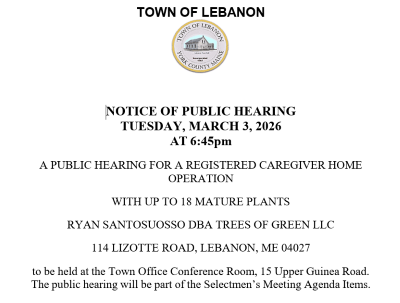What we had a taste of last month is going be a mouthful beginning Saturday when what could be a five-day heat wave rolls in cresting on Monday with what could be century mark highs.
The real heat begins on Saturday with an Accuweather forecast high of 88, then builds through the weekend, which promises very little chance of rain and plenty of humidity.
Highs on Sunday, Monday and Tuesday will be 93, 99 and 95 respectively, with nighttime lows hovering anywhere between the mid-60s to mid-70s. Wednesday will also flirt with 90 degrees with a predicted high of 88.
Even worse, there are no predicted thunderstorms during the stretch that could afford any reprieve from what will be a sweltering stretch.
Expect that folks will be stocking up on food and supplies today and tomorrow, so get ahead of the curve and get what you need today and Friday.
Here are some tips to help you stay cool from ready.gov/heat
Heat preparedness tips.
Extreme heat is a period of high heat and humidity with temperatures above 90 degrees for at least two to three days. In extreme heat your body works extra hard to maintain a normal temperature, which can lead to death. In fact, extreme heat is responsible for the highest number of annual deaths among all weather-related hazards.
Remember:
-
Extreme heat can occur quickly and without warning.
-
Older adults, children and sick or overweight individuals are at greater risk from extreme heat.
-
Humidity increases the feeling of heat as measured by a heat index.
IF YOU ARE UNDER AN EXTREME HEAT WARNING:
-
Find air conditioning.
-
Avoid strenuous activities.
-
Wear light clothing.
-
Check on family members and neighbors.
-
Drink plenty of fluids.
-
Watch for heat cramps, heat exhaustion and heat stroke.
-
Never leave people or pets in a closed car.
HOW TO STAY SAFE WHEN EXTREME HEAT THREATENS
Prepare NOW
Find places in your community where you can go to get cool while following the latest guidelines from CDC about social distancing to reduce the spread of COVID-19.
Try to keep your home cool:
-
Do not rely on a fan as your primary cooling device.
-
Cover windows with drapes or shades.
-
Weather-strip doors and windows.
-
Use window reflectors such as aluminum foil-covered cardboard to reflect heat back outside.
-
Add insulation to keep the heat out.
-
Use a powered attic ventilator, or attic fan, to regulate the heat level of a building's attic by clearing hot air.
-
Install window air conditioners and insulate around them.
-
Learn to recognize the signs of heat illness. For more information visit: www.cdc.gov/disasters/extremeheat/warning.html
Be Safe DURING
Never leave a child, adult, or animal alone inside a vehicle on a warm day. Exposing yourself to the sun or to high temperatures does not protect you from coronavirus disease 2019 (COVID-19).
Find places with air conditioning. Libraries, shopping malls, and community centers can be a cool place to beat the heat. Stay informed and check with local authorities about possible closures prior to going to cooling centers.
-
If air conditioning is not available in your home:
-
Contact Low Income Home Energy Assistance Program (LIHEAP) for help.
-
Contact your local health department or locate an air-conditioned shelter in your area.
-
Spend some time at a shopping mall or public library- even a few hours spent in air conditioning can help.
-
Take cool showers or baths.
-
Don't rely solely on fans to keep you cool. While electric fans might provide some comfort, when temperatures are really hot, they won't prevent heat-related illness.
-
Use your stove and oven less to maintain a cooler temperature in your home.
-
If you're outside, find shade. Wear a hat wide enough to protect your face. Wear appropriate cloth masks and keep a physical distance of at least six feet while you're outside. Don't wear a masks if you have trouble breathing or if you are unable to remove it on your own. Children under the age of 2 shouldn't wear face coverings. If you can, wash your reusable mask regularly.
-
During extreme heat events, use a cloth mask that has breathable fabric, such as cotton, instead of polyester. Keep in mind that masks with filters, which are used when cleaning mold or debris, are often made with synthetic materials, which makes it harder to breathe.
-
Wear loose, lightweight, light-colored clothing.
-
Drink plenty of fluids to stay hydrated. If you or someone you care for is on a special diet, ask a doctor what would be best. There is no evidence showing that you can get COVID-19 through drinking water or touching water. Conventional water treatment methods, such as those in most municipal drinking water systems, use filtration and disinfection methods that should remove or inactivate the virus that causes COVID-19.
-
Being prepared allows you to avoid unnecessary excursions and to address minor medical issues at home, alleviating the burden on urgent care centers and hospitals.
-
Remember that not everyone can afford to respond by stocking up on necessities. For those who can afford it, making essential purchases and slowly building up supplies in advance will allow for longer time periods between shopping trips. This helps to protect those who are unable to procure essentials in advance of the pandemic and must shop more frequently. In addition, consider avoiding WIC-labeled products so that those who rely on these products can access them.
-
-
Do not use electric fans when the temperature outside is more than 95 degrees. You could increase the risk of heat-related illness. Fans create air flow and a false sense of comfort, but do not reduce body temperature.
-
Avoid high-energy activities outdoors. Avoid working outdoors during the midday heat, if possible.
-
Check yourself, family members, and neighbors for signs of heat-related illness and COVID-19. Maintain social distancing between yourself and persons not part of your household.
HEAT CRAMPS
-
Signs: Muscle pains or spasms in the stomach, arms or legs
-
Actions: Go to a cooler location. Remove excess clothing. Take sips of cool sports drinks with salt and sugar. If you are sick and need medical attention, call your healthcare provider first. Follow your healthcare provider's instructions about whether you should go to the hospital or cooler location yourself, as you may be putting others or yourself in greater risk for contracting COVID-19. If cramps last more than an hour, seek medical attention. If possible, put on a mask before medical help arrives.
HEAT EXHAUSTION
-
Signs: Heavy sweating, paleness, muscle cramps, tiredness, weakness, dizziness, headache, fainting, nausea, vomiting
-
Actions: Go to an air-conditioned place and lie down. Loosen or remove clothing. Take a cool bath. Take sips of cool sports drinks with salt and sugar. Call your healthcare provider if symptoms get worse or last more than an hour.
HEAT STROKE
-
Signs:
-
Extremely high body temperature (above 103 degrees) taken orally
-
Red, hot and dry skin with no sweat
-
Rapid, strong pulse
-
Dizziness, confusion or unconsciousness
-
-
Actions: Call 9-1-1 or get the person to a hospital immediately. Cool down with whatever methods are available until medical help arrives.
This story will be updated.














